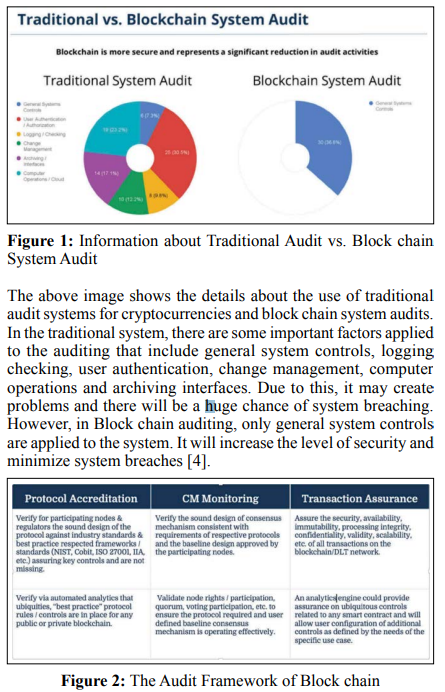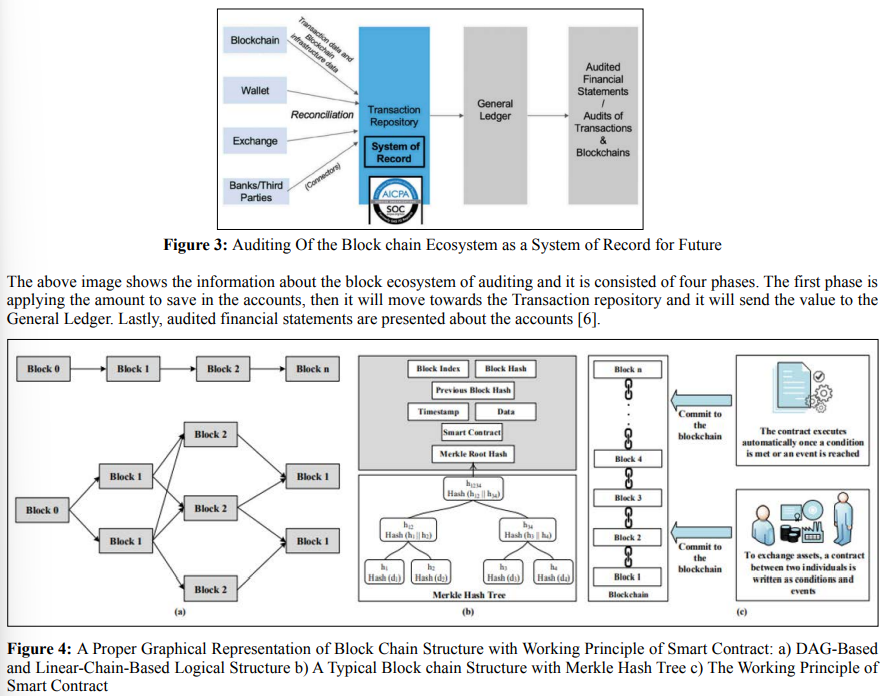Author(s): Abhishek Shukla
It can be noted that cryptocurrencies have gained huge popularity in recent years and blockchain technology is serving as the backbone of this digital revolution. Due to the increase in technology, the demand for cryptocurrencies and blockchain-based applications continues to grow. Therefore, there is a need for secure and reliable smart contracts. Based on these points, the article will show some innovative ways to use machine learning and artificial intelligence to create and audit crypto token contracts and provide information on different blockchain platforms. with the comprehensive literature review and explanation of how machine learning and artificial intelligence techniques can be used to enhance the security and efficiency of crypto token contract address management.
With the introduction of cryptocurrencies, the financial landscape has been transformed and it is offering some decentralized and secure alternative to the traditional banking system. At the heart of this transformation are blockchain technologies that enable the creation and management of digital assets by using smart contracts. These smart contracts are self-executing agreements that contain some predefined rules and conditions and it is often written in code, which automatically, verify, facilitate or enforces the negotiation or performance of a contract [1].
Another point is that the security and reliability of smart contracts are extremely important for the adoption and success of blockchainbased applications. According to this, the fundamental aspect of smart contract security is related to the management of crypto token contract addresses. All these addresses act as identifiers for the tokens on the blockchain and if there is any vulnerability in its audit and creation will lead towards serious financial losses and security breaches [2].
Therefore, this paper will explore some innovative approaches to address these main challenges of creating and auditing crypto token contract addresses on different blockchain platforms by using ML and AI technologies. These technologies have made a strong stride in different industries because of their remarkable application in the blockchain space which holds great promise for improving efficiency and security [3].
There are a lot of authors who have provided comprehensive information regarding cryptocurrencies and their security issues some of the important research is given below:
Based on the article, the author showed that the management and creation of crypto token contracts relied on manual processes. Due to this, it will lead towards error-prone and time-consuming. However, some recent advancements in AI have paved the way for automated address-generation algorithms. Therefore, the accuracy and security level are increased. Furthermore, some machine learning models are also trained to identify different anomalies and patterns in existing contract addresses. It will help to identify various potential vulnerabilities [4].
For the identification of vulnerabilities in smart contracts, security contracts are extremely important. With the help of machine learning and artificial intelligence, it is possible to automate the auditing process by analyzing contract codes for common security flaws like integer overflow, reentrancy attacks, and unauthorized access. All these auditing tools must be powered by AI that can provide real-time feedback to developers. Therefore, it will reduce the likelihood of security breaches [5].
The ecosystem of blockchain is highly diverse because it contains various platforms like Polkadot, Ethereum, and Binance Smart Chain. Therefore, it is possible to adapt machine learning and artificial intelligence algorithms to work across various blockchain networks. It will ensure that the crypto token contracts are addressing and showing compatibility with the underlying technology [6].
For detecting fraud, AI and ML play an important role related to crypto token contract addresses. Through analyzing the transaction data and network behaviour, these technologies can identify suspicious activities like phishing attempts, and address spoofing in real-time [7].
It shows that the gas fees on blockchain networks will be a huge concern for users. Therefore, through analyzing the transaction data and network behaviour, it is simple for these technologies to identify suspicious activities like address phishing attempts, and spoofing in real-time [1].
Machine learning and artificial intelligence contain a huge potential to enhance the efficiency and security of crypto token contract address management and it is done through various ways given below
It is possible to use machine learning and Artificial Intelligence algorithms to generate crypto token contract address security by employing randomness and complex encryption techniques. It will reduce the risk level to address any vulnerabilities and collisions in the generation process [1].
Furthermore, machine learning models can easily learn from historical data to detect any pattern of addressing suspicious or misuse activity. It will help the system to identify any potentially fraudulent or compromised addresses [6].
Such auditing tools that are AI-powered can continuously monitor and analyze the smart contract codes used for security vulnerabilities. Moreover, they can easily identify common vulnerabilities like integer overflows, reentrancy attacks, and unauthorized access.
Also, the machine learning models can adapt and learn from new attack patterns. Therefore, it will become simple to detect emerging threats in crypto token contract addresses [5].
Also, AI algorithms are employed for developing interoperable solutions that work seamlessly across various blockchain networks. It will allow for standardized address management and token transfers.
Furthermore, machine learning technology will be used to optimize transactions and optimise routing path selection that will implement cross-chain transactions successfully by minimising latency and ensuring efficient token transfers [3].
The Artificial Intelligence models can easily analyze transaction data and network behaviour for detecting fraudulent activities regarding crypto token contract addresses. Also, they can identify various anomalies like phishing attempts, and address spoofing.
Through machine learning models, it is simple to adapt to evolving fraud techniques that will make the system more effective to evolve fraud techniques and prevent new types of attacks on the system [2].
With AI algorithms the system can predict any network congestion and transaction demand and it will help the users to optimize gas fees while interacting with crypto token contract addresses. It will ensure that the users are paying a reasonable fee before any transaction.
The machine learning models can analyze the historical gas fee data. Through this, they can make real-time recommendations for optimal gas prices that will minimize the cost of token transfers [6].
The security of crypto token contract addresses can be increased through AI-driven authentication systems. It can be done by implementing biometric behaviour-based authentication methods. These methods will ensure that only authorized users can manage and access these addresses [1].
The machine learning models are involved in monitoring user behaviour for detecting suspicious activities or unauthorized access attempts. Therefore, security measures in real-time can be triggered [1].

The above image shows the audit framework of block chain. This framework is divided into three main components and these components include Protocol Accreditation, CM monitoring, andTransaction Assurance. From this, Protocol Accreditation will be used for verifying participating nodes and regulations for the system. In CM Monitoring, the system will verify the sound design of the consensus mechanism that is according to the requirements of respective protocols and its baseline design is approved by the participating nodes. Lastly, transaction assurance assumes the security, availability, validity scalability, processing integrity, and confidentiality of all transactions on the Blockchain DLT network [3].

The above figure shows details about the graphical representation of block chain structure with its working principle of a smart contract. It consists of three main stages. The first stage is a linear-chain-based logical structure, the second stage is a typical block chain structure with a Merkle hash tree, and the third one is related to the smart contract's working principle.
Summing up all the discussion above, it is concluded that block chain technology will continue to evolve in the future. Therefore, there is a need for robust security and efficient management of the crypto token contract. Under these facts, the article explored some innovative ways of using AI and ML to revolutionize the creation of auditing of crypto token contracts on different block chain platforms.
On the other hand, the main applications of ML and AI in this context promise some enhanced security through automated address generation and real-time security and audits. By using these technologies, it is possible to facilitate cross-block chainS compatibility. Due to this, it will become simple for users to transact seamlessly across various networks. Further, ML and AL can play an important role in Fraud detection and optimizing gas fees that will improve the overall user experience level in the world of cryptocurrencies.
Also, the integration of ML and AI into the block chain ecosystem offers some exciting opportunities to address security challenges and enhance the efficiency level of crypto token contract address management. Secondly, all these technologies continue to mature with time and they increase the level of block chainbased applications making them accessible and secure for global audiences in the future.
